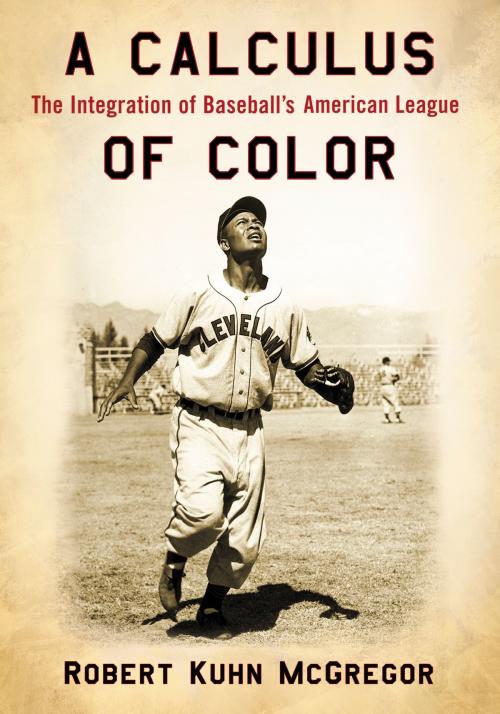A Calculus of Color
The Integration of Baseball's American League
Nonfiction, Sports, Baseball, History, Social & Cultural Studies, Social Science, Cultural Studies, African-American Studies| Author: | Robert Kuhn McGregor | ISBN: | 9781476618685 |
| Publisher: | McFarland & Company, Inc., Publishers | Publication: | April 2, 2015 |
| Imprint: | Language: | English |
| Author: | Robert Kuhn McGregor |
| ISBN: | 9781476618685 |
| Publisher: | McFarland & Company, Inc., Publishers |
| Publication: | April 2, 2015 |
| Imprint: | |
| Language: | English |
In 1947, as the integration of Major League Baseball began, the once-daring American League had grown reactionary, unwilling to confront postwar challenges—population shifts, labor issues and, above all, racial integration. The league had matured in the Jim Crow era, when northern cities responded to the Great Migration by restricting black access to housing, transportation, accommodations and entertainment, while blacks created their own institutions, including baseball’s Negro Leagues. As the political climate changed and some major league teams realized the necessity of integration, the American League proved painfully reluctant. With the exception of the Cleveland Indians, integration was slow and often ineffective. This book examines the integration of baseball—widely viewed as a triumph—through the experiences of the American League and finds only a limited shift in racial values. The teams accepted few black players and made no effort to alter management structures, and organized baseball remained an institution governed by tradition-bound owners.
In 1947, as the integration of Major League Baseball began, the once-daring American League had grown reactionary, unwilling to confront postwar challenges—population shifts, labor issues and, above all, racial integration. The league had matured in the Jim Crow era, when northern cities responded to the Great Migration by restricting black access to housing, transportation, accommodations and entertainment, while blacks created their own institutions, including baseball’s Negro Leagues. As the political climate changed and some major league teams realized the necessity of integration, the American League proved painfully reluctant. With the exception of the Cleveland Indians, integration was slow and often ineffective. This book examines the integration of baseball—widely viewed as a triumph—through the experiences of the American League and finds only a limited shift in racial values. The teams accepted few black players and made no effort to alter management structures, and organized baseball remained an institution governed by tradition-bound owners.















